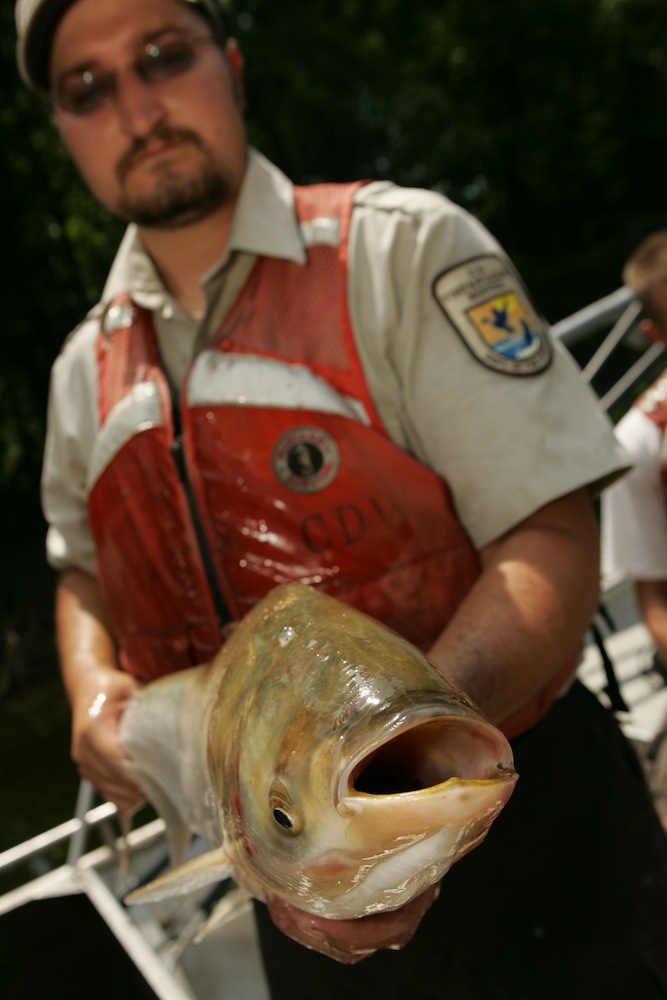Asian Carp Threaten U.S. Great Lakes

Two species of Asian carp could drive native fish out of the Great Lakes, according to a new government report that warns against letting these invasive fish gain a foothold in this new territory.
Bighead and silver carp in Midwestern rivers pose a "substantial environmental risk" to the Great Lakes, particularly Lakes Michigan, Huron and Erie, according to a risk assessment released today (July 16) by Canadian and U.S. scientists.
"Ever since these non-native fish first escaped and began to breed prolifically in the rivers of the Midwest, the questions everyone has been asking are: Can a breeding population survive in the Great Lakes, and would it be a significant problem if they did?" Now we know the answers, and unfortunately they are yes and yes," Marcia McNutt, the director of the U.S. Geological Survey, said in a statement. "This study will help scientists and resource managers in Canada and the U.S. determine how and where to redouble their efforts as they continue to prevent the establishment of these invasive fish."
The risk of a fishy invasion increases over the next 20 years as the carp continue to spawn in Midwestern rivers, the researchers found. They added that their findings are based on containment efforts under way by November 2010 and do not include extra efforts established since then. [Gallery: Invasive Species]
The scientists found that parts of the Great Lakes hold enough food to support the Asian carp should they make their way to the lakes. The most likely entry point would be via the Chicago Area Waterway System, the series of rivers and canals that connects Lake Michigan to the Lower Des Plaines River, the Illinois River, and ultimately the Mississippi River.
If the carp did spread into the Great Lakes, they would be likely to push out native species by competing with them for food, primarily plankton. The resulting decline in plankton-eating fish would lead to a loss of predator fish that eat the plankton-eaters. Asian carp also could prey on the larvae of certain fish such as walleye and yellow perch, the scientists reported.
Strategies to keep the invasive carp out of the Great Lakes include tracking and monitoring the fish and possibly installing electric dispersal barriers to prevent them from moving toward Lake Michigan. Some biologists also have suggested that Americans eat the carp, which are consumed elsewhere despite the fishes' boniness, to reduce their numbers.
Sign up for the Live Science daily newsletter now
Get the world’s most fascinating discoveries delivered straight to your inbox.
Follow Stephanie Pappas on Twitter @sipappas or LiveScience @livescience. We're also on Facebook & Google+.










